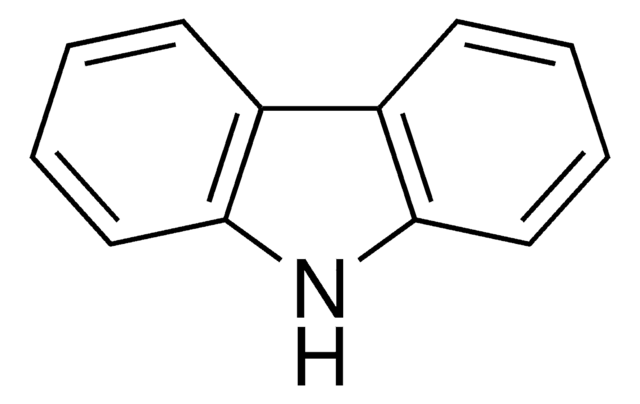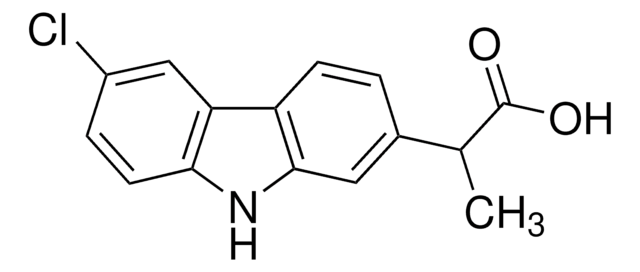1096702
USP
Carprofen Related Compound A
United States Pharmacopeia (USP) Reference Standard
Synonym(s):
Carbazole
About This Item
Recommended Products
grade
pharmaceutical primary standard
vapor pressure
400 mmHg ( 323 °C)
API family
carprofen
manufacturer/tradename
USP
bp
355 °C (lit.)
mp
243-246 °C (lit.)
application(s)
pharmaceutical (small molecule)
format
neat
SMILES string
c1ccc2c(c1)[nH]c3ccccc23
InChI
1S/C12H9N/c1-3-7-11-9(5-1)10-6-2-4-8-12(10)13-11/h1-8,13H
InChI key
UJOBWOGCFQCDNV-UHFFFAOYSA-N
Looking for similar products? Visit Product Comparison Guide
General description
Application
Analysis Note
Other Notes
related product
Signal Word
Warning
Hazard Statements
Precautionary Statements
Hazard Classifications
Aquatic Chronic 4 - Carc. 2 - Muta. 2
Storage Class Code
11 - Combustible Solids
WGK
WGK 2
Flash Point(F)
Not applicable
Flash Point(C)
Not applicable
Regulatory Listings
Regulatory Listings are mainly provided for chemical products. Only limited information can be provided here for non-chemical products. No entry means none of the components are listed. It is the user’s obligation to ensure the safe and legal use of the product.
ISHL Indicated Name
Substances Subject to be Indicated Names
ISHL Notified Names
Substances Subject to be Notified Names
JAN Code
1096702-50MG:
Choose from one of the most recent versions:
Certificates of Analysis (COA)
Sorry, we don't have COAs for this product available online at this time.
If you need assistance, please contact Customer Support.
Already Own This Product?
Find documentation for the products that you have recently purchased in the Document Library.
Our team of scientists has experience in all areas of research including Life Science, Material Science, Chemical Synthesis, Chromatography, Analytical and many others.
Contact Technical Service




